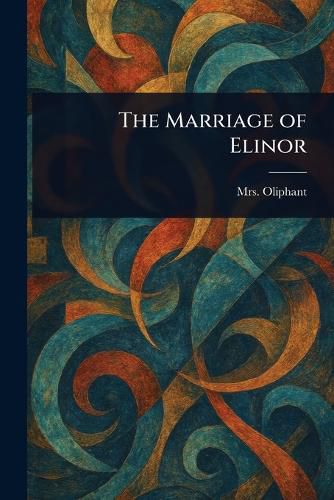Readings Newsletter
Become a Readings Member to make your shopping experience even easier.
Sign in or sign up for free!
You’re not far away from qualifying for FREE standard shipping within Australia
You’ve qualified for FREE standard shipping within Australia
The cart is loading…






This title is printed to order. This book may have been self-published. If so, we cannot guarantee the quality of the content. In the main most books will have gone through the editing process however some may not. We therefore suggest that you be aware of this before ordering this book. If in doubt check either the author or publisher’s details as we are unable to accept any returns unless they are faulty. Please contact us if you have any questions.
"The Marriage of Elinor," by Margaret Oliphant, explores the complexities of marriage and relationships within the rigid social structure of 19th-century England. This literary work delves into the domestic life of married women, offering a glimpse into their roles and expectations. Oliphant's novel provides a nuanced portrayal of the challenges and triumphs experienced by women navigating the intricacies of marriage and social class. A classic work of fiction, "The Marriage of Elinor" examines the timeless themes of love, duty, and the search for personal fulfillment within the confines of societal norms. It remains a compelling read for anyone interested in the lives and experiences of women in 19th-century England and the enduring power of romantic and literary fiction.
This work has been selected by scholars as being culturally important, and is part of the knowledge base of civilization as we know it.
This work is in the public domain in the United States of America, and possibly other nations. Within the United States, you may freely copy and distribute this work, as no entity (individual or corporate) has a copyright on the body of the work.
Scholars believe, and we concur, that this work is important enough to be preserved, reproduced, and made generally available to the public. We appreciate your support of the preservation process, and thank you for being an important part of keeping this knowledge alive and relevant.
$9.00 standard shipping within Australia
FREE standard shipping within Australia for orders over $100.00
Express & International shipping calculated at checkout
This title is printed to order. This book may have been self-published. If so, we cannot guarantee the quality of the content. In the main most books will have gone through the editing process however some may not. We therefore suggest that you be aware of this before ordering this book. If in doubt check either the author or publisher’s details as we are unable to accept any returns unless they are faulty. Please contact us if you have any questions.
"The Marriage of Elinor," by Margaret Oliphant, explores the complexities of marriage and relationships within the rigid social structure of 19th-century England. This literary work delves into the domestic life of married women, offering a glimpse into their roles and expectations. Oliphant's novel provides a nuanced portrayal of the challenges and triumphs experienced by women navigating the intricacies of marriage and social class. A classic work of fiction, "The Marriage of Elinor" examines the timeless themes of love, duty, and the search for personal fulfillment within the confines of societal norms. It remains a compelling read for anyone interested in the lives and experiences of women in 19th-century England and the enduring power of romantic and literary fiction.
This work has been selected by scholars as being culturally important, and is part of the knowledge base of civilization as we know it.
This work is in the public domain in the United States of America, and possibly other nations. Within the United States, you may freely copy and distribute this work, as no entity (individual or corporate) has a copyright on the body of the work.
Scholars believe, and we concur, that this work is important enough to be preserved, reproduced, and made generally available to the public. We appreciate your support of the preservation process, and thank you for being an important part of keeping this knowledge alive and relevant.